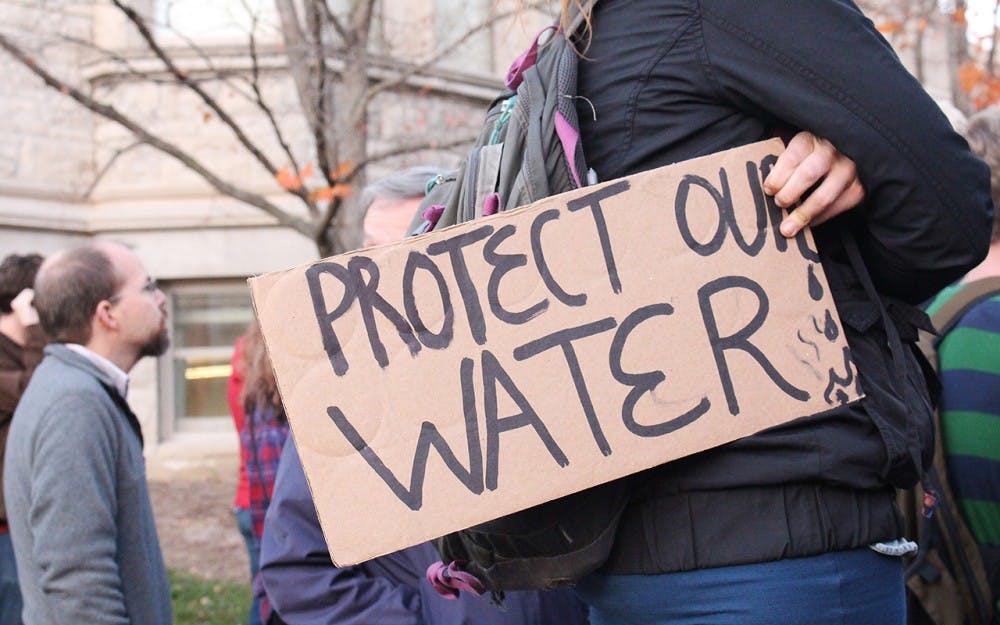President Trump signed an executive order Tuesday to expedite the environmental approval and completion of the controversial Dakota Access and Keystone XL oil pipelines. Construction on both pipelines was blocked while Barack Obama was in office.
The number of protesters in North Dakota has fallen from several thousand to less than a thousand. The remaining Standing Rock protesters who are not local Standing Rock Sioux are preparing to leave.
“The Dakota Access Pipeline (DAPL) under development by Dakota Access, LLC, represents a substantial, multi-billion-dollar private investment in our Nation’s energy infrastructure,” Trump’s memorandum to continue construction said. “This approximately 1,100-mile pipeline is designed to carry approximately 500,000 barrels per day of crude oil from the Bakken and Three Forks oil production areas in North Dakota to oil markets in the United States.”
“Something that’s not often discussed is the source of this oil, which is the Bakken Oil Fields, which are a very filthy source of oil,” IU environmental studies professor Christopher Doran said.
Doran was at the Dakota Access Oil Pipeline protest in North Dakota in November.
One of the primary arguments against the Dakota Access Oil Pipeline is the oil will leak into the Missouri River, which is the Standing Rock Sioux tribe’s primary water source, Doran said. Also concerning to protesters are the broader implications of the pipeline construction, including the rights of indigenous peoples.
Doran said he believes Trump had incentive to expedite the pipeline because of a donation of more than $100,000 given to Trump by the Energy Transfer Partners CEO. Energy Transfer Partners is the parent company of Bakkens Holding Company LLC, which owns the Dakota Access Pipeline.
Trump’s federal disclosure forms filed last May showed he owned between $15,000 and $50,000 in stock in Energy Transfer Partners, according to the Associated Press.
“It’s not that much of a surprise,” said Terrence Daniels, founder of the group Support the Revolution. ”His nominations ... are all oil executives. His nomination to the state department, his nomination to the EPA, both of those are people who you would know would go in this direction. He hired Exxon oil executives, so it’s not a surprise.”
Daniels and his group of tech activists have been on the ground at Standing Rock since August and have worked on projects like creating a secure internet and telephone connection at the camp and fundraising for drones to get footage of the pipeline construction.
“Our actions are really to bring what’s going on to light,” Daniels said. “It’s uncovering the horrible things that are going on behind the scenes. We have to expose those things over and over again until people finally say that they have enough.”
Daniels said he plans to leave the protest site in North Dakota within three weeks.
Activists at Standing Rock aimed not only to protest the pipeline, but to help the Standing Rock Sioux Tribe in other ways by developing infrastructure and taking in donations for them.
Despite the new presidency and anticipated changes to environmental policy, Daniels said he still has hope that they can affect further change even if it doesn’t include stopping the Dakota Access Pipeline. Environmental activists across the U.S. have mobilized to strengthen community resistance and organizing. They are also strengthening the divestment movement, which puts financial pressure on large companies and banks who invest in projects that they oppose.
Though the Standing Rock protest is ending, other pipeline and environmental protests, such as the protest against the Sabal Trail Pipeline in Florida, across the country are continuing.
Although environmentalists won’t receive very much support from the U.S. government in the next four years due to Trump’s staunch stance against the existence of climate change, people across the world are organizing for civil and environmental rights as exemplified by the women’s marches last weekend, Daniels said.
Since the protests in North Dakota began, they have attracted worldwide media attention and become part of a broader movement for environmental and indigenous rights across the U.S.
“Something that we have to keep in mind is that the resistance to this is not going to stop,” Doran said. “In fact the resistance is only going to get more strident.”




